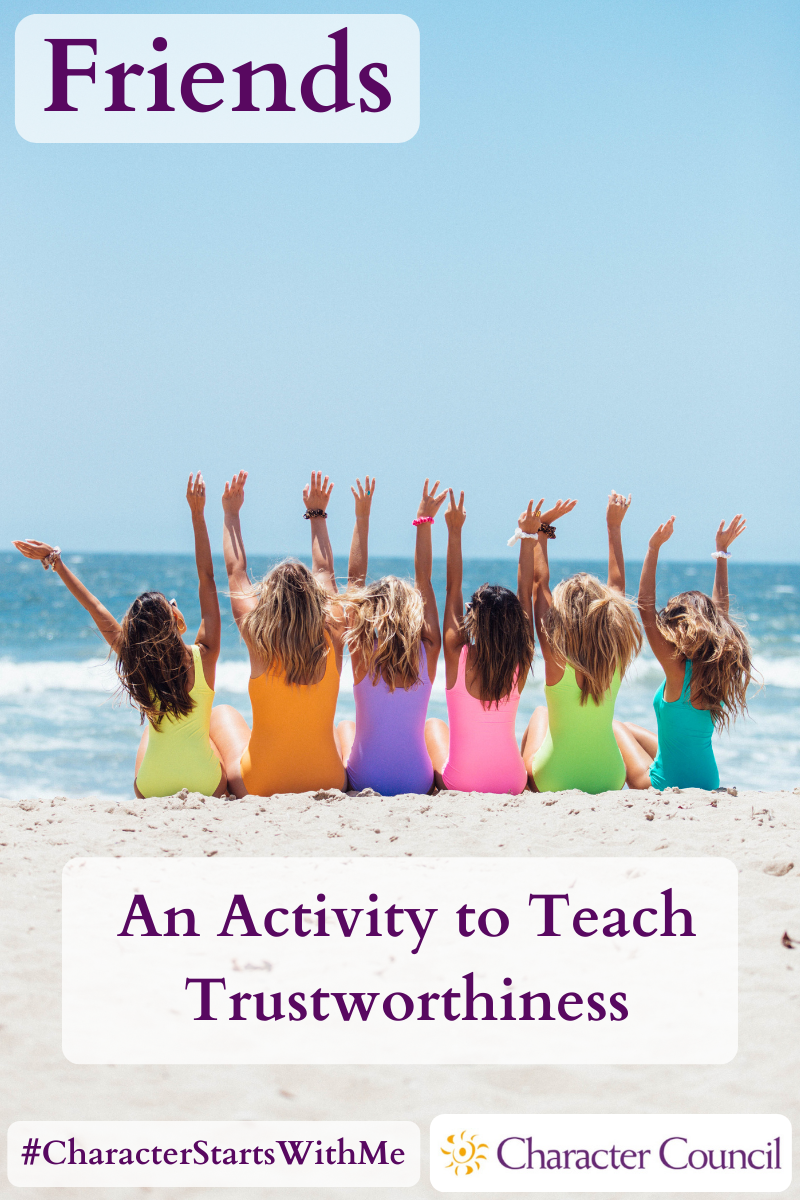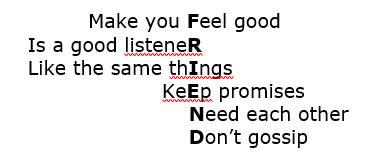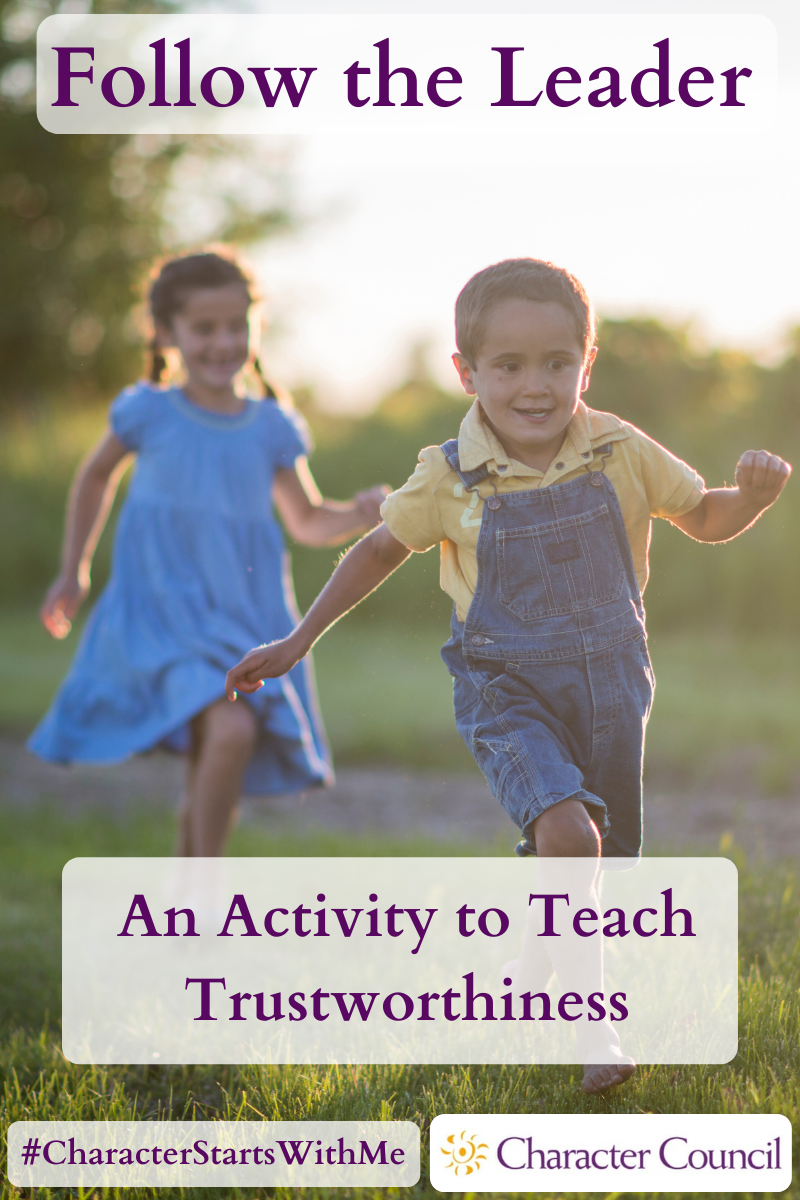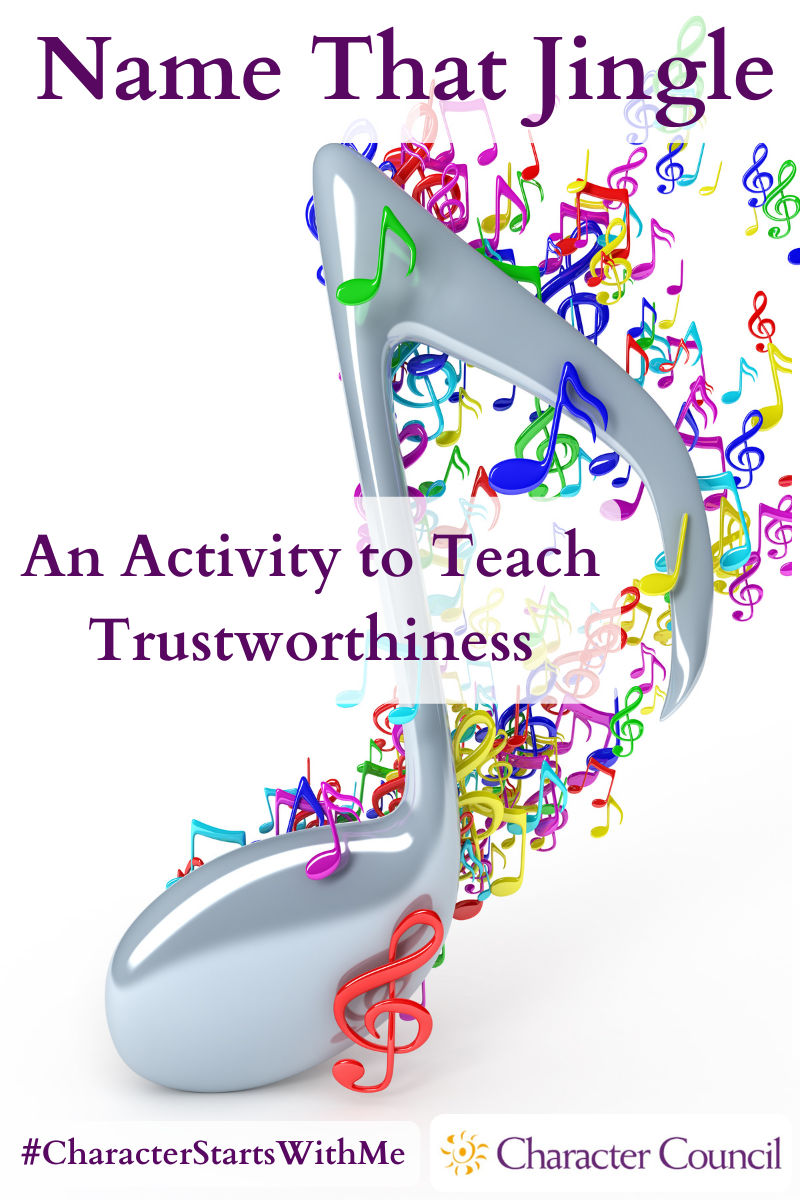
Trustworthiness Activities
The activities here are fun ways to teach character. The game aspect makes the lesson more memorable. Each activity has processing questions at the end. Without processing the activity, the exercise is just a game. To make it a stronger lesson when you process it, relate the character quality to a core value that your organization promotes.
Consider picking a student to run the activity. You will need to give them time ahead of the activity to prepare. Another option is to pick a few students to run the activity for a younger classroom after you have run it for your class. Encourage your students to repeat it in the home for younger siblings or even parents.
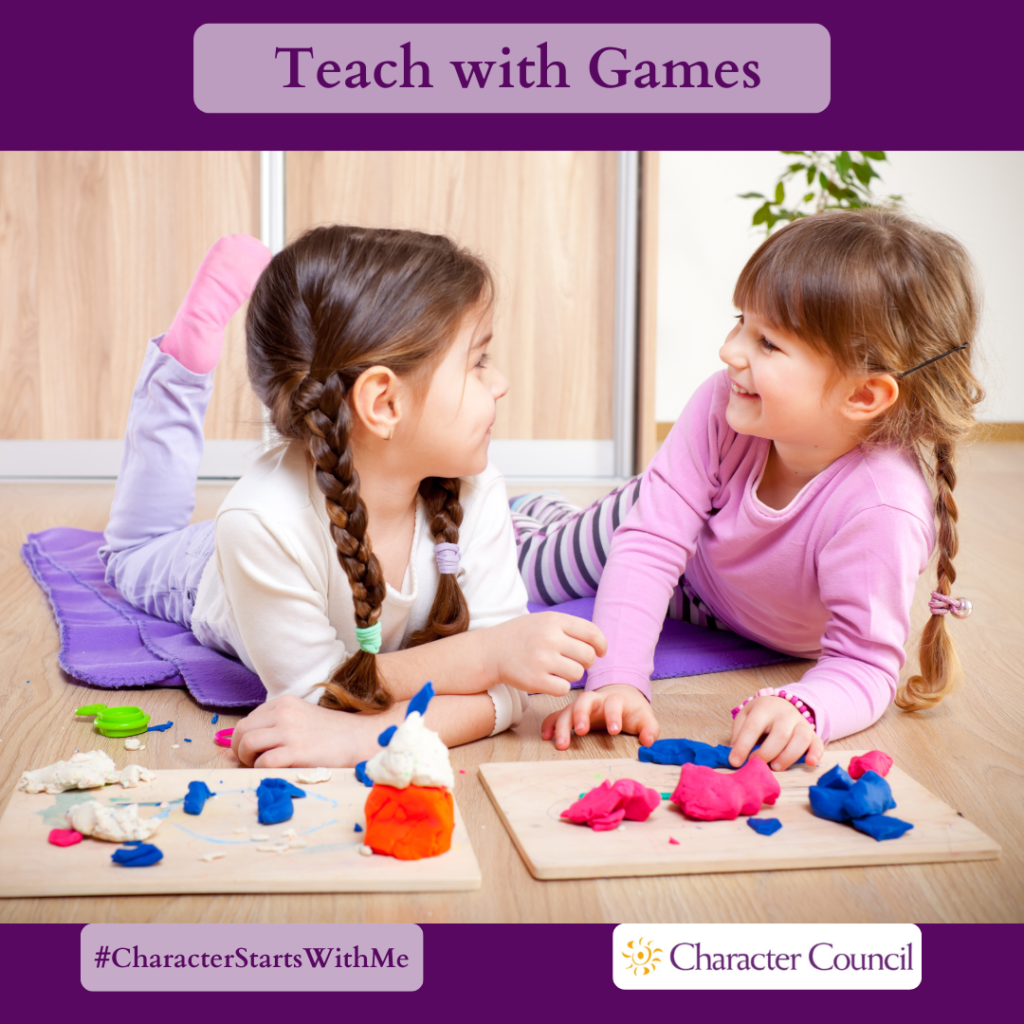
Friends
Ask the class how you know that someone is your friend. Try to get as many responses as possible but you are looking for some of the items on the following list:
They are nice and kind.
They are positive.
They share.
They are a good listener.
You spend time together.
You can have good fun together.
They like it when you are happy.
You can make each other laugh.
You like the same things.
They keep their promises.
They keep your secrets.
They say nice things about you to other people.
They are helpful.
Now have them make an acrostic for Friend. Write the word FRIEND vertically down the center of the page. Have them come up with words or phrases that define a good friend for each line. The word or phrase can start or end with the letter on the line or the letter can be in the middle.
Here is an Example:
Have them take the following quiz to see if they are a good friend. Ask them to close their eyes then read each question and have them think to themselves their answers.
- Are you nice and kind to others?
- Do you share and take turns?
- Are you a good listener?
- Do you like it when your friends are happy?
- Do you keep your promises?
- Do you say nice things about others?
- Are you helpful?
To process the activity, ask these or similar questions:
- Which exercise did you like better, the acrostic or the quiz?
- Is it good to have good friends?
- If you answered no or sort of to any of the quiz questions, are you going to work on being better at that?
- If you answered yes to any of the quiz questions are you going to continue to do that?
- End with a review of the ‘I will’ statements for Trustworthiness and see how people who are trustworthy make great friends
Follow the Leader
Pair up your students. If there is an odd number, you can make a group of three or partner with one of the students. Have the students face each other and let them play follow the leader. Each person in the pair will get 30 seconds to be the leader and do something that the partner has to imitate. They can do the same thing for 30 seconds or multiple things. Give them suggestions of good things to do such as patting your head, winking, pulling on your ear, rubbing your tummy, etc. Set a timer and let the first person be the leader. At thirty seconds have them switch.
To process this activity, ask these questions:
- Was it easy to follow your partner?
- Which was better – being the leader or the follower?
- Who are the people in your life that are your leaders? (teachers, parents, babysitters, coaches)
- Do leaders have to be trustworthy?
- Do followers have to be trustworthy?
- Do you think it is difficult to be a good leader?
- Would a good leader ever ask you to do something that is bad?
Name That Jingle
There are jingles and advertising slogans that have staying power. Years later you can identify the product or finish the jingle. This activity can either be a singing activity and use jingles or you can make it a slogan activity. Pick a few that your students would know and sing or recite them and see if they can name the product or finish the jingle. Alternately, you can pick an oldy but goody (like Plop, Plop, Fizz, Fizz) and challenge them to ask their parents or find it on the internet.
Use this as an introduction into trusting advertising. When they hear a commercial, do they believe everything the announcer says? Every commercial for toilet paper tells you it is the best one. Can they all be right? It’s important to understand who you can trust and who you can’t. Use this YouTube video to teach kids about how to determine what is trustworthy online. It is a British video, so they use the word Adverts for commercial or ad.
To process this activity, ask these questions:
- Which jingle/slogan do you like the best?
- Are commercials always truthful?
- Is everything you read on the Internet trustworthy?
- Why is it important to question if something or someone is trustworthy?
